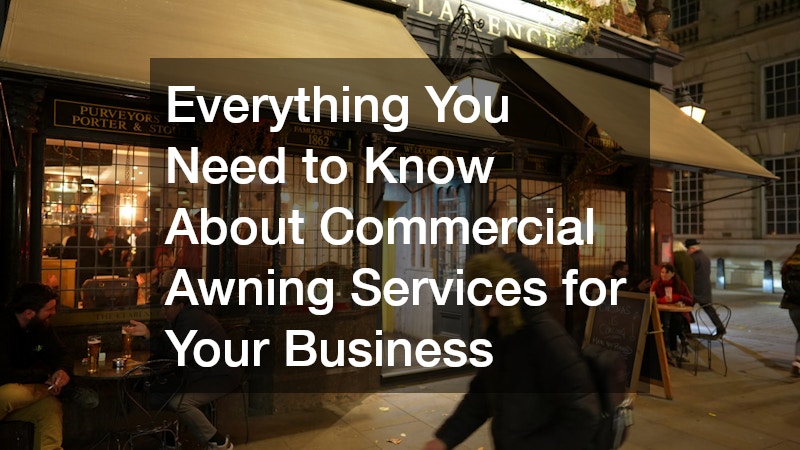In today’s world, where consumers are becoming increasingly aware and vocal about businesses’ ethical practices, the importance of brand responsibility cannot be overstated. It’s not just about offering a great product or service anymore. Companies are now expected to step up, show genuine concern, and take action regarding social and environmental issues. It’s about how a business takes accountability for its impact on the world and uses its platform to foster positive change.
This isn’t just nice to have for businesses looking to thrive and make a meaningful difference; it’s a must-have. This article explores the ins and outs of promoting corporate social and brand responsibility. We’ll look at practical steps businesses of all sizes can take to become more responsible and, consequently, more successful. Because at the end of the day, it’s not just about making profits – it’s about making a positive impact.
Advocate for Policies and Regulations That Promote Responsible Business Practices

Like in those Hollywood movies where the underdog fights for justice, businesses have a powerful role in advocating for policies and regulations that champion responsible practices; it’s not just about being on the right side of history; it’s about actively pushing for a future where brand responsibility isn’t optional. Take, for instance, the push for stricter EPA guidelines. Businesses leading this charge aren’t just keeping the air and water clean for the next generation; they’re setting a standard for how industry giants should operate within our ecosystem.
It’s a bit like being the captain of a sports team; you’ve got to lead by example. Supporting legislation encouraging renewable energy use or campaigns for fair labor laws shows that a business isn’t just talk. And it’s not all about the big gestures, either. Sometimes, it’s as simple as adopting green office practices or choosing suppliers who follow ethical labor standards.
Include Public Health and Safety in Your CSR Initiatives
Just as a goalkeeper is crucial for a football team, public health and safety are pivotal in a company’s CSR initiatives. It’s a shield that protects and promotes the wellbeing of the community. When companies prioritize health and safety, they’re not just complying with regulations; they’re putting their brand responsibility into action. They’re demonstrating a profound commitment to the welfare of people beyond the workplace.
For instance, incorporating legionella testing into routine health checks isn’t just a regulatory tick box; it’s a lifesaver. It shows a brand’s dedication to preventing disease and protecting public health. This testing prevents potential outbreaks of Legionnaires’ disease, a severe lung infection caused by inhaling small droplets of water contaminated with the bacteria Legionella.
Furthermore, actively promoting vaccination drives or ergonomic workspaces goes a long way. It’s more than healthcare; it’s about creating a healthier community. Engaging in initiatives that make roads safer or that improve air quality contributes equally towards this goal.
Implement Eco-Friendly Practices

Remember in The Day After Tomorrow when climate change suddenly turns catastrophic? Well, in the real world, companies are taking steps now to prevent such a future. They’re weaving brand responsibility into their business models with eco-friendly practices. Take solar installation, for instance. It’s not just about saving on energy bills; it’s a bold statement that a company cares for the planet. They’re tapping into the sun’s power to run their operations, showing that renewable energy is not only viable but necessary.
Then, there’s the push for EV charging stations on the premises. They’re making it easier for employees and customers to say yes to electric vehicles, reducing carbon footprints one car at a time. But it doesn’t stop there. These businesses are also championing recycling programs, cutting down on waste like it’s going out of fashion. They’re swapping single-use plastics for sustainable materials, proving that small changes can lead to big impacts.
Empower Employee Volunteerism
Everybody knows that a company’s heart beats strongest in the community it serves, and what better way to showcase this than through empowering employee volunteerism? It’s one thing to talk about brand responsibility; it’s another to live it by allowing employees the time and resources to give back. Many forward-thinking companies are seeing the value in facilitating volunteer opportunities for their teams.
They’re not just giving employees a day off here and there but are integrating service into their corporate identity. Imagine teams building homes, planting community gardens, or assembling gift baskets for those in need. These activities don’t just spread goodwill; they bond teams together under the shared banner of positive action.
It’s all about choice, too. Some folks might dig into environmental projects, while others prefer supporting local food banks or literacy programs. Companies are getting creative, offering a menu of causes to support, thus ensuring everyone finds something that lights their fire. And then there’s the ingenuity of matching volunteer hours with corporate donations, doubling the impact of each employee’s effort.
Promote Accessibility Initiatives
Who says brand responsibility can’t extend to making the world more accessible? When companies decide to focus on accessibility initiatives, they’re not just complying with standards. They’re actively participating in creating a more inclusive society. For instance, sponsoring a wheelchair ramp installation project at local businesses doesn’t just signal social responsibility. It’s a direct action that significantly improves the day-to-day lives of individuals with mobility challenges. Imagine a world where every storefront, not just the new or renovated ones, is accessible to everyone. That’s the kind of impact companies can have.
Furthermore, it’s about recognizing that accessibility goes beyond physical spaces. It’s also about ensuring digital platforms are user-friendly for people with various disabilities. This could mean investing in software that simplifies website navigation for those with visual impairments or ensuring that all digital content is screen-reader compatible.
These steps, big or small, help weave a stronger social fabric, proving that a company’s commitment to the community extends to every member of that community. It’s showing, not just telling, that businesses can be a force for good. Inclusivity, in this context, becomes a natural extension of a brand’s identity, championing a world where everyone has equal access and opportunity.
Invest in Employee Well-Being

‘As the Beatles once sang, ‘I get by with a little help from my friends,’ and in the workplace, that translates to investing in employee well-being. It’s a core aspect of brand responsibility. When companies place a high value on the health and happiness of their teams, they’re not just building a better workplace; they’re crafting a better world. Incorporating a life coach into the employee benefits package isn’t just about dealing with work-related issues; it’s about empowering employees to tackle life’s challenges head-on, boosting their overall well-being.
Offering flex time shows an understanding that life happens and work isn’t always the priority. Encouraging breaks, especially in high-stress environments, reminds everyone that taking time to breathe isn’t just okay; it’s encouraged. Setting up regular wellness challenges, like step competitions or meditation minutes, can also inject a bit of fun into the workday while promoting healthier lifestyles.
After all, a happy team is a productive team. Making these choices goes beyond the basic expectations of workplace support; it shows a commitment to genuinely making a difference in people’s lives. And in the end, isn’t that what a responsible brand is all about?’
Support Ethical Supply Chains
Feeling good about what you buy isn’t just about the product itself; it’s about knowing it came from a place that respects workers and the environment. That’s where ethical supply chains come into play, a crucial piece of brand responsibility. By choosing suppliers who pay fair wages and avoid harmful practices, brands show they care about more than just profits.
Take a building material supplier, for example. When they source materials sustainably and ensure their factories operate under fair conditions, it sends a powerful message. It tells us they’re looking out for the planet and the people on it. And it’s not just about avoiding the bad. It’s about actively doing good.
Supporting local communities, reducing carbon footprints, and ensuring safe working conditions are all part of the mix. Brands have the power to lead by example, influencing not just their competitors but their customers too. It’s a ripple effect.
When one brand commits to an ethical supply chain, it encourages others to follow suit, leading to broader industry changes. Plus, it builds trust with consumers who are increasingly looking to support responsible businesses. Making ethical choices in supply chains isn’t always easy, but it’s worth it. It’s about doing the right thing for people and the planet.
Educate and Raise Awareness

‘Remember when everyone was talking about that movie that changed how they saw the world? Well, brands have that power, too, especially when they put their minds to educating and raising awareness. It’s not just about selling a product; it’s about sharing knowledge that can make a difference. Event rental companies, for example, play a huge role here. They’re in a unique position to turn any event green and educate clients and guests on sustainability. Picture this: At your next big event, every piece of decor, from the tablecloths to the lighting, has a story of sustainability behind it. And it’s not just whispering; it’s making a statement.
Brand responsibility stretches beyond the product or service; it’s about enlightening the community. Brands can host workshops, create engaging social media campaigns, or even partner with schools to get the word out. They’re saying, ‘Hey, there’s a better way to do things, and we’re here to show you how.’ They’re not just talking the talk; they’re walking the walk.
And it doesn’t stop with the environment. Brands educate on social issues, health, and wellness, you name it. They’ve got the platform, and when they use it wisely, they don’t just change minds; they change actions. It’s a win-win. They get to build a stronger, more trustworthy brand while making the world a bit better. Isn’t that what we’re all about?’
Consider Ethical Marketing and Advertising
Experts in the field argue that brand responsibility doesn’t stop at the product; it flows through every message sent to the public. Ethical marketing and advertising stand at the heart of this approach. It’s about being honest, transparent, and, above all, fair in every ad launched and every post shared. A mobile friendly website, for instance, isn’t just convenient; it’s a testament to a brand’s dedication to accessibility and inclusivity. It says, ‘We’re here for everyone,’ in a language that crosses digital divides.
But it’s more than just accessibility. Ethical marketing means presenting products and services without misleading claims or hidden catches. It’s about making sure the flash sale popping up on your screen feels like a genuine chance to save, not a pressure tactic. Brands take a hard look at customer feedback and improve their practices continuously, ensuring they stay on the right side of ethics. They also explore diverse platforms to spread their message, understanding that their audience isn’t monolithic.
Furthermore, promotion involves choosing socially responsible partners and platforms that reflect a brand’s values. It’s not just about where the ads appear; it’s about the context surrounding them. Ethical advertising goes hand-in-hand with social responsibility, showing consumers that it’s not just about making a sale—it’s about making a difference. In this way, brands build trust and loyalty, proving that their commitment to the planet and its people is not just talk.
In today’s business landscape, the role of brand responsibility can’t be overstated. It’s not just about what a brand sells but how it connects with people and the planet. Ethical marketing isn’t a nice-to-have; it’s a must. By prioritizing honesty and transparency, businesses not only respect their customers but also earn their trust and loyalty. It’s about recognizing that every decision—a flash sale, a social media post, or a partner choice—reflects the brand’s commitment to doing right by both people and the environment.
This means showing up for everyone and making sure products and services are accessible and inclusive. It’s acknowledging feedback and being willing to evolve. It’s about making a genuine difference, not just in what we sell but in how we engage with the world. At the end of the day, businesses that lead with integrity and genuine concern for social and environmental issues not only set themselves apart in a crowded marketplace but also forge deeper connections with their communities.
In essence, this is a commitment to ethical practices that resonate not just on paper but in every action a business takes. It’s not easy, but it’s worth it. Businesses that get this right don’t just succeed; they thrive, proving that doing good is not just good for the world—it’s good for business too.





